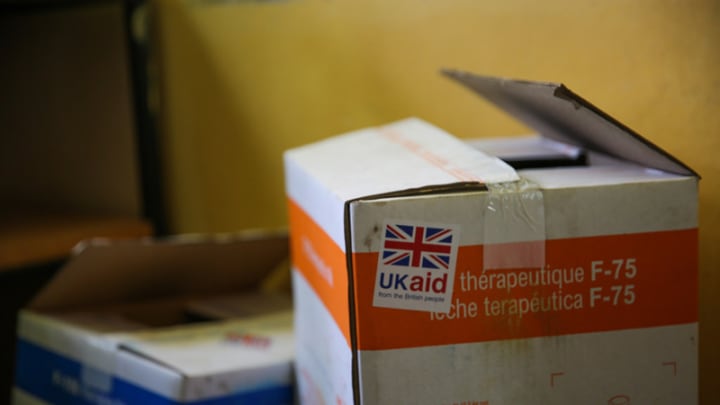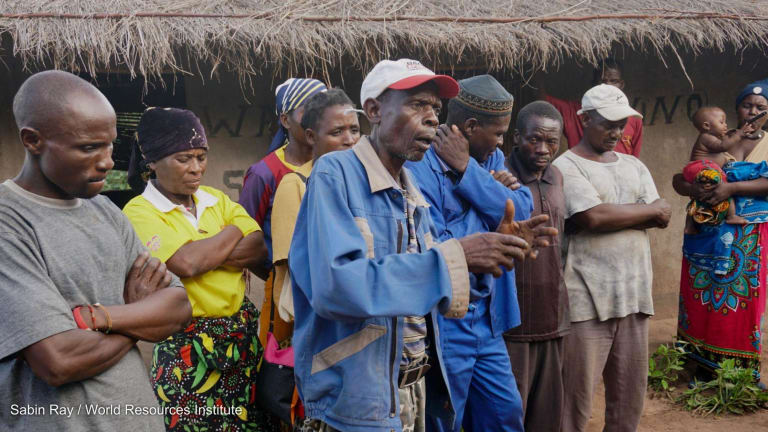
I’ve spent the last five decades working in development and humanitarian organizations all over the world. It is through a lifetime of involvements that I have seen the world come together to achieve some amazing things; eradicating smallpox, halving child mortality rates, and halving the number of people living in extreme poverty.
But I’ve also seen the world fail to grapple with some of the latest and biggest challenges: The worsening impact of climate change, the protracted Syria conflict, and turning our back on the biggest movement of refugees since World War II.
My friend and colleague Hans Singer was one of the early pioneers of the 0.7 percent aid target, set at the end of the “first development decade,” in 1970. It has been heartening to see the United Kingdom government adopt and maintain it since 2013.
We should be proud to be one of the six countries who are reaching the United Nations target for international aid. Our aid has enabled doctors and nurses to fight and help win the battle against Ebola in West Africa, and has sheltered, fed and educated children forced to flee from their homes in Syria as well as supported many caught in the recent droughts in East Africa and Somalia. Equally important, it has supported a wide range of development activities focused on assisting countries to develop long-run self-sufficiency.
UK's bid to change aid rules 'not up for discussion,' says DAC chief
The British government has pledged to change the rules around official development assistance yet again — but the head of the Development Assistance Committee told Devex it's not going to happen.
U.K. aid, by common consent, is among the most effective and well spent around the world. Scrutinized by a dedicated department, staffed by experts who know what they’re doing. Of course, this scrutiny means our aid money is held up to the light more than any other government spending. But that only increases its effectiveness.
However, there are potential changes ahead, and we need to ensure U.K. aid remains as effective as it can be. The government has said that it wants to "work with like-minded countries" to redraw the Organisation for Economic Co-operation and Development’s definition of overseas aid. It is unclear how the government will seek to change the OECD definition but what is clear is that U.K. aid needs to remain clearly focused on poverty alleviation and providing support for the Sustainable Development Goals. Any dilution or diversion of this mission would represent a turning back from agreed international standards and a waste of aid from its basic purposes.
In addition, Brexit negotiations may mean that aid money previously contributed via European development funding could be freed up. This U.K. aid could now be used to strengthen multilateral institutions, such as the U.N., and our influence within them, as well assisting in the global response to emerging challenges.
See more related topics:
► Clues to DFID's economic plans emerge with post-Brexit trade
► New DFID funding for East Africa crisis welcomed, raises questions
► Every $1 of UK aid increases UK exports by $0.22, study finds
What is clear is that despite progress and worldwide development gains there is still much more to do. The latest U.N. Human Development Report raised the alarm about poorer children being left behind and inequalities deepening. Likewise, a recent UNICEF report says that children growing up in poverty are nearly twice as likely to die before reaching their fifth birthday than children growing up in better circumstances. It warns that unless the world makes faster progress on reducing child mortality, by 2030 almost 70 million children will die before reaching their fifth birthday.
The report also shows the impact that aid focused squarely at the poorest can have. The research shows that investing in the health and survival of the most deprived children and communities saves almost twice as many lives for every $1 million spent as equivalent investments in less deprived groups. It backs up an unconventional prediction UNICEF made in 2010: The higher cost of reaching the poorest children with life-saving, high-impact health interventions would be outweighed by greater results.
Within the U.N., Britain has a reputation for being a principled aid leader which sticks by the rules. Our government was instrumental in agreeing the SDGs, which have created a blueprint for development over the next 15 years. There are critics and snipers of the aid agenda, there always have been and always will be. But at this critical point in time, it is crucial that we recognize the good that aid has been done. There are children alive today as a result of U.K. aid. As we exit the European Union, our outward looking and progressive aid strategy will deliver results and help us to fulfil our global commitments.
Join the Devex community and access more in-depth analysis, breaking news and business advice — and a host of other services — on international development, humanitarian aid and global health.




